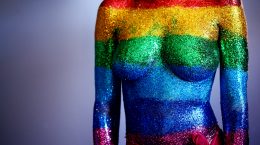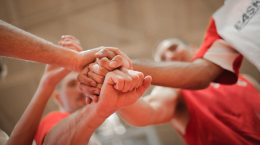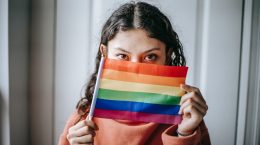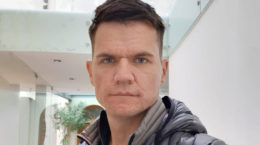«Who am I? How does the world around me find me?» – each of us from time to time asks this important existential question. And now we are not talking about abstract thoughts, but about the essence of human existence. There are people who are concerned about the problem of their own identity more than once “every five years” or in difficult life situations. There are people for whom this question is always urgent, and it is necessary to answer it every minute of their lives. And to answer both society and him/herself.
Transgender people. People whose gender identity does not match the sexual characteristics he/she acquires at birth. And this is not about some new-fangled trends or personal weakness. They have to constantly search for their real “I” and to defend their boundaries and rights, although these people want a little: to look and be perceived by society in accordance with who they feel. And society reacts to this simple natural desire with hostility. Right now, ask yourself the question: would you like to stop reading this text? And why?
In some cases, this discrepancy and social rejection makes the life of transgender people so unbearable that it leads to suicide of ones who are different from the majority.
With a purpose to survive and socialize, transgender people often resort to hormonal and / or surgical sex correction (then they should be called “transsexuals”). But this does not solve the most important problems like the mental ones. Not a single operation is able to help here. Like each of us, people with special sexual sense of self are in need of understanding, acceptance and the possibility to realize one’s own “I” for happiness and good mental health.
Tg House is a long-term campaign of the “Our House” International Center for Civil Initiatives (ICCI), designed to help transgender people who are still “non-existent” in Belarusian society and who constantly face discrimination and pressure.
The problem is well known. Every year, society in the world shows more tolerance toward such people, they (and their problems) are more often talked about in public spaces, in the media, and “coming outs” of public people become popular. However, this is happening in the world, while the Belarusian reality is such that our society is not yet ready to accept transgender people and their challenges. Most of Belarusians absolutely do not understand (or do not want to understand) who are transgender people, and “ignorance” often becomes a cause of stigma and discrimination. From childhood, people with a particular perception of their gender identity do not get acceptance among relatives, friends, society, and are even subjected to persecution. They have to build their lives differently, work for the good of the state, exist in society, while remaining invisible.
In October 2019, the ICCI “Our House” carried out monitoring of discrimination against transgender people in Belarus. In frames of the monitoring, our employees studied the main cases of infringements the rights of this group of people in the Belarusian society and highlighted the problems that transgender people face in our country.
The main goal of the Tg House campaign is to reduce stigma and discrimination against transgender people in Belarusian society. Our task is to show that transgender people need the same thing as any “socially-approved person”: the opportunity to have a family, get an education and quality medical care, have their rights and freedoms and be under state protection. They need a sense of confidence in their social well-being: something that allows them to adapt to the society more quickly.
As part of the campaign, we will help to build tolerant, welcoming, adequate conditions for the socialization of a person and his/her comfortable existence in the environment, he/she strives for.
In frames of the Tg House campaign, it is possible to get human rights support: “Our House” has experienced human rights defenders. The campaign is coordinated by a highly qualified specialist, who has gone through a transgender transition and she is ready to provide any advisory assistance and moral support to those who are not accepted by society.







